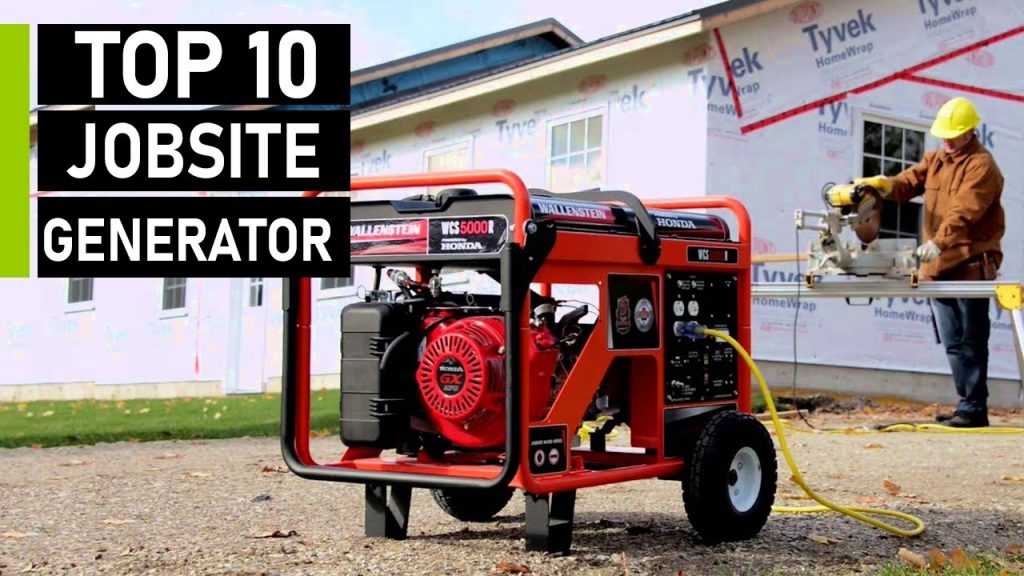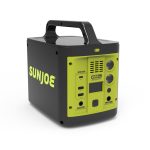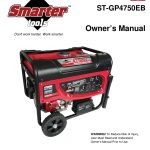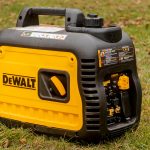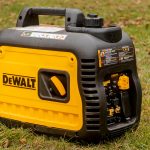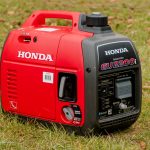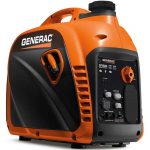Choosing the right generator for your jobsite can be a difficult task. You need to consider your power needs, environmental factors, portability, and budget. You will also need to think about the length of time you will be using the generator and the types of tools you will be powering with it. To get the most out of your generator, it’s important to choose the right size for your needs. If your generator is too small, it won’t be able to power all of your tools.
Too large, and you will end up overpaying for power you don’t need. You will also need to consider the environment you will be using your generator in. If you will be working in an enclosed space, you will need a generator that meets EPA emission standards. If you will be using it outdoors, you will need to make sure it is designed to be weatherproof and durable. Another important factor to consider is portability. If you will be moving your generator around the jobsite, you will need to make sure it is light enough to carry and has a convenient handle. Finally, you need to consider your budget. Generators come in a variety of sizes and price points, so it’s important to shop around to find the best deal for your needs. With a bit of research, you can find a generator that meets your needs without breaking the bank.
Does the size of a jobsite affect a generator price?
The size of a jobsite can have an impact on the price of a generator. Generators used on larger jobsites typically require a larger capacity in order to handle the amount of power needed, which can increase costs. However, smaller jobsites can get by with a smaller generator, which may save them money. When choosing a generator for your jobsite, consider how much power it will need to supply and for how long. If your jobsite is large and you need a large amount of power for long periods of time, you should be prepared to pay a higher price for the generator.
On the other hand, if your jobsite is smaller and you don’t need as much power, a smaller and less powerful generator may be more cost-effective. It’s also important to consider the noise levels of the generator. Generators used on larger jobsites can be much louder than those used on smaller jobsites, so it’s important to factor in the noise level when making your decision. Overall, the size of a jobsite can have an effect on the cost of a generator, but there are other factors to consider as well. The amount and type of power needed, the size of the generator, and the noise level should all be taken into account when choosing a generator for your jobsite. By weighing all of these factors, you can find the best generator for your needs at the best price.
What makes a generator a good generator?
To ensure that the job site runs smoothly and efficiently, it is important to have a good generator. A reliable generator should be able to provide enough power to run the jobsite equipment while also being able to supply additional power when needed. It should also be able to handle any load fluctuations without any problems. In terms of efficiency, the generator should be fuel-efficient and able to produce a steady output of power throughout its usage. It should also have a long run-time.
Durability and portability are also important factors to consider when choosing a jobsite generator. A durable generator should be able to withstand the harsh conditions of a job site and be able to be transported easily and safely. Finally, a good jobsite generator should be easy to install and maintain. It should have clear instructions and support documents to help you get it up and running quickly and effectively. It should also have a comprehensive customer service and repair network in case of any issues.
What size generator do I need for a job site?
You need to make sure the generator you choose is powerful enough to run the tools, appliances and other equipment you’ll need at the job site. The size of the generator you’ll need will depend on the total wattage of the items you need to run. Most tools and appliances that require a generator will list the amount of wattage they need to run. Add up all of these wattages to get the total wattage you’ll need. This total wattage will determine the size generator you need.
For example, if the total wattage is 5,000 watts or higher, you’ll need a generator that is 7,500 watts or higher. If the total wattage is less than 5,000 watts, you’ll need a generator that is between 3,500 and 7,500 watts. In addition, you should consider the fuel type of the generator. Most job site generators are powered by gasoline, diesel or propane. Make sure to choose a generator that is compatible with the fuel type available in your area. When shopping for a generator, always read the manufacturer’s manual to ensure you are getting the right size generator for your job site needs. This will help ensure the generator you choose is powerful enough to run the tools and appliances you need.
What will a 12000 watt generator run?
It can provide enough power to run a large number of tools and equipment, from power saws and drills to lights and heaters. It can also provide enough power to run an air compressor or a generator for off-grid power. The generator can run up to 7.5 HP motors, making it perfect for most small to medium-sized jobsite tasks. With a run time of up to 8 hours on a full tank of fuel, it can provide a reliable source of power throughout the day. This generator is also equipped with a variety of safety features, such as a low oil pressure shutdown system and an automatic overload protection system.
It also has an overload indicator light and an easy-to-read fuel gauge, making it easy to monitor the generator’s performance. Overall, a 12000 watt jobsite generator provides an efficient and reliable power source for professionals using a variety of tools and equipment. With its low noise output and safety features, it is a great choice for any job site.
What size generator do I need to live off grid?
When it comes to living off grid, choosing the right generator is important. If you plan to use a jobsite generator to live off grid, you’ll need to consider the size of the generator. Generally, a jobsite generator should provide at least 8,000 watts of power in order to power a few home appliances. This size generator will be enough to power a few basic appliances such as a refrigerator, lights, and television. For more intensive appliances such as a washer and dryer, you’ll need a generator with 12,000 watts or more of power.
For the most efficient and reliable power, you may want to consider a generator with 20,000 watts capacity or more. This size generator will allow you to run multiple appliances and still have power left over for other tasks. When living off grid, it’s important to choose the right generator for your needs. Depending on the appliances you plan to power with your generator, you may need to opt for a generator with more wattage. A larger generator can provide you with the power you need for a comfortable and reliable off-grid lifestyle.
Which is the best generator for industrial use?
It provides a reliable source of electricity, which is necessary for many industrial activities. When selecting the best generator for industrial use, it’s important to consider the output requirements and the environment in which it will be used. A generator with a high output rating is ideal for larger sites, while smaller sites may be able to get by with a smaller generator. It’s also important to consider the environmental conditions, as certain materials are more suited to certain climates and weather conditions. The best generator for industrial use should also be durable and reliable.
Look for a generator that is made of high-quality components, as this will ensure it will last longer and perform better. Additionally, look for features such as automatic voltage regulation, which helps to protect the generator from power surges. In terms of maintenance, it’s important to select a generator that is easy to service. Look for one that has an easy-to-access control panel, as this will make it simpler for maintenance staff to make repairs or adjustments. Finally, fuel efficiency is another important factor to consider when selecting the best generator for industrial use. Look for one that offers the best fuel consumption to ensure you get the most out of the generator. To sum it up, when selecting the best generator for industrial use, it’s important to consider the output requirements and the environment in which it will be used, as well as its durability, reliability, and fuel efficiency. With the right generator, you’ll be able to ensure your industrial site has a reliable source of power.
Which generator is used in industry?
Jobsite generators are often used to power tools, lighting, and other equipment that may be used on the job. These generators come in a variety of sizes and forms to best suit the needs of the job site. Diesel and gas powered generators are the most common types used in industry. Diesel generators are typically the most fuel-efficient and reliable, while gas powered generators are less expensive and often used for more portable applications. Jobsite generators are also equipped with a variety of safety features to ensure that both the operator and the equipment is protected from damage.
These features can include circuit breakers, ground fault circuit interrupters, and shock absorbing pads. In addition to the safety features, these generators are also designed with convenience in mind. They often come with multiple outlets, making it easier to connect multiple pieces of equipment at once. Overall, jobsite generators are an essential piece of equipment for any industrial job site. With their reliable power, safety features, and convenient design, these generators are ideal for powering the tools and equipment necessary for a successful job.
What are the 4 types of generators?
There are four main types of jobsite generators:
- Portable Generators: These are small and lightweight generators that are designed to be used with portable tools and equipment. They are great for providing power to small job sites or areas where access to a main electrical source is difficult.
- Standby Generators: These are large, stationary generators that are capable of providing a continuous power source to large job sites or facilities. They are often used to provide power during times of outages or in areas where access to a main electrical source is impossible.
- Backup Generators: These are stationary generators that are used to provide power in the event of a power outage. They are typically used to keep essential equipment up and running during an outage.
- Emergency Generators: These are portable generators that are used in emergency situations. They are designed to provide essential power in the event of an emergency or power outage. Overall, jobsite generators are essential for providing an independent source of power for construction sites and other job sites. There are four main types of jobsite generators – portable generators, standby generators, backup generators and emergency generators – that are designed to meet the different needs of job sites.
What size generator do I need for a construction site?
When deciding on the size generator you need, there are a few key factors to consider. First, you need to consider the amount of power your construction site will require. This includes the number of tools and machines being used and their individual power needs. Second, you need to think about the type of fuel your generator will use. Diesel and gasoline are the most common types and the size of the generator may vary based on the type of fuel.
Third, you need to consider the size of the jobsite and the environment it will be used in. If the construction site is in a remote location with no access to a power grid, then a larger generator may be necessary. Lastly, you should consider the budget you have for the generator. While larger generators can provide more power and a more reliable source of electricity, they may also be more expensive. With all these factors in mind, you can determine the size generator you need for your construction site.
What size generator do I need to run a jackhammer?
When it comes to jobsite generators, the size of the generator you need to run a jackhammer will depend on the power of the jackhammer itself. Many jackhammers require at least 4 kW of power to operate properly, so you should look for a generator that is rated to provide at least 4 kW of power to make sure your jackhammer is operating effectively. It is also important to consider the voltage of the generator. Different types of jackhammers require different voltages, so you will need to find a generator that matches the voltage requirements of your particular jackhammer. For jobsite generators, you should also consider the size of the unit you need.
Generators come in a range of sizes, so you should think about the space you have available and make sure the generator you choose will fit in the area you want to use it. Finally, you should think about the type of fuel the generator uses. Different generators use different types of fuel, so you should find one that uses the fuel type that is most convenient for you. Overall, when looking for a jobsite generator for a jackhammer, you should consider the power rating, voltage, size, and fuel type to ensure you find the right generator for your needs.
What size generator do I need for off grid?
When deciding what size generator you need for off grid jobsite use, you should consider what type of equipment and power needs you will have. A generator’s size is measured in watts, and the wattage requirement for the job site should be determined first. For example, if you plan on running lights, tools, and small appliances, you should look for a generator that can provide a minimum of 3,000 to 4,000 watts of power. If you plan on running larger equipment such as a compressor or sump pump, you will likely need a generator with a minimum of 7,500 watts. You should also consider the location and duration of use.
If you will be operating the generator in remote locations, you should look for a model that can operate using remote start or that has a built-in fuel tank. If you plan to use the generator for longer periods of time, you should look for a model with features such as noise reduction, fuel efficiency, and long-term durability. Finally, you should consider your budget. While larger generators may provide more wattage for larger jobs, they also tend to be more expensive. Consider what you will use the generator for and the budget you are working with to make the best decision for your needs. In conclusion, it is important to consider what type of equipment and power needs you will have, the location and duration of use, and your budget when deciding which size generator is best for off grid jobsite use. With the right research and decision-making, you can find the generator that best meets your needs.
What size generator do you need for a construction site?
When it comes to powering a construction site, the size of the generator you need will depend on the size of the job and the type of equipment being used. A jobsite generator is designed to be able to handle the power needs of a construction site. For smaller jobs, a portable generator with a few thousand watts of power may be sufficient. For larger jobs, such as those involving heavy machinery, a larger generator with more wattage may be necessary. The wattage needed will depend on the type of machinery and the number of machines being used.
When selecting a generator for a construction site, it’s important to consider not only its wattage, but also its safety features. It’s essential to have a generator that is equipped with overload protection, as this will help prevent overloading the generator and damaging equipment. It’s also a good idea to make sure the generator is fuel-efficient, as this will help keep running costs down. Many jobsite generators are designed to be run on multiple fuel sources, such as gasoline, diesel, and propane. Overall, the size of generator you need for a construction site will depend on the size of the job and the type of equipment being used. Make sure to research and select a generator that meets your site’s power needs and is equipped with the necessary safety features.
What is the function of a generator in a construction site?
It provides temporary electrical power to a range of tools and machines during construction, allowing the project to proceed more efficiently. The generator has several components, including a generator, fuel tank, and exhaust system. The generator uses fuel to create electrical energy, which is then used to power various tools and machines. This energy can also be used to power lights and other electrical appliances. The generator must be properly maintained in order to ensure that it is able to provide reliable power.
This includes regular checks of the fuel levels, oil levels, coolant levels, and other important components. Regular maintenance helps to ensure that the generator is able to efficiently provide the necessary power. The generator can also be used to provide backup power in case of an emergency. If the main power supply is lost due to a power outage or other reason, the generator can be used to provide the necessary power for an extended period of time. This can be a lifesaver in many situations. In conclusion, a jobsite generator is an invaluable piece of equipment for construction sites. It provides temporary electrical power when it is needed and can also serve as a backup source of power in emergencies. With proper maintenance, it can provide reliable power for years to come.
Are dual fuel construction site generators the best option?
Many people swear by dual fuel generators, because they offer the convenience of being able to switch between gasoline and propane as fuel sources. This means that you can always find a fuel source, which can be especially helpful in remote locations. Dual fuel generators are also typically more affordable than other types of construction site generators, making them a great choice for people on a budget. Additionally, these generators can provide enough electricity to power a variety of different tools and equipment. On the other hand, some people may prefer a single fuel generator due to its smaller size and weight.
This can be an advantage if you need to transport your generator often. The cost of running a single fuel generator is also lower than with a dual fuel generator, so this could be a consideration for those looking to save money in the long run. Ultimately, whether dual fuel construction site generators are the best option is up to the individual’s needs. If you need the convenience of being able to switch between fuel sources, then a dual fuel generator may be the right choice. However, if size and weight are important factors, then a single fuel generator may be the better option.
What tools do you need for a construction site?
It provides a reliable source of power, making it easy to operate heavy machinery and other essential equipment. It also ensures that workers have enough power to complete their tasks in a safe and efficient manner. When choosing a jobsite generator, it’s important to consider the type of equipment that will be used on the construction site. A generator that is too small will not be able to power all the necessary equipment, and one that is too large can be a drain on resources. In addition to the generator, some other important tools for a construction site include welding machines, air compressors, saws, and drills.
These tools help workers safely and efficiently complete their tasks. It is important to use the right tools and safety gear when working on a construction site. Other important items to consider when setting up a construction site include protective clothing, safety glasses, and ear protection. All of these items are essential for keeping workers safe. Finally, any construction site should have a clearly marked emergency exit and a well-stocked first aid kit. This ensures that workers can exit the site quickly and safely if an emergency occurs. A strong safety culture is an essential part of any successful job site.
What size generator do I need for construction?
When it comes to jobsite generators, size matters. Depending on the size of the construction job, you’ll need to choose the right generator size to meet your power needs. For small jobs, like residential construction, a smaller 5kW to 8kW generator should be enough to power a single compressor, miter saw, drill, or other tools. For larger jobs, like commercial construction, you’ll likely need a generator with a higher power output ranging from 10kW up to 30kW. These generators can easily power multiple tools and compressors simultaneously.
The best way to decide on the generator size is to look at the total power requirement of all the tools and equipment you plan to run. Add up the power ratings of all the tools and then add an additional 20-30% of wattage to cover inrush current. This will help you determine the size of generator you need. When it comes to buying a jobsite generator for your construction job, size does matter. Be sure to do your research to get the best generator for your specific power needs.
What is the most powerful generator for a house?
A jobsite generator is one of the most powerful generators for a house. It is designed for rough outdoor use and is perfect for powering construction sites, but it can also provide reliable, clean power for your home. It has a large fuel tank, which means that it can run for longer periods of time. It is also capable of generating more power than a standard home generator. A jobsite generator is also very versatile, as it can provide power to a wide range of appliances and tools.
This includes power tools, outdoor lighting, and even air conditioners. It can also provide power to keep your home comfortable when you don’t have access to regular electricity. Overall, a jobsite generator is a great choice for powering your home and providing reliable power when you need it. It is very powerful, has a large fuel tank, and is versatile enough to power a variety of appliances and tools. With the right generator, you can keep your home powered and comfortable, no matter the situation.
What size generator do I need to run a 3000 square foot house?
When deciding what size generator is needed to run a 3000 square foot house, it is important to consider the type of generator being used. If a jobsite generator is being used, a larger generator will be needed to ensure that all the necessary appliances and utilities can be supplied with the necessary power. A generator that supplies at least 10,000 to 12,000 watts of electricity should be used, depending on the size and power of the appliances and utilities being used. This will also depend on how much power the average person in the home consumes, as certain appliances and utilities may require more power than others. For a 3000 square foot house, it is important to make sure that the generator is the right size to provide enough power.
Too small of a generator and the house will not have enough power, while too large of a generator can cause problems with overloads. When choosing a jobsite generator, it is important to make sure it has enough wattage to cover the necessary power needs of the home. In addition, it is important to make sure that the generator is reliable and has been tested for quality. A jobsite generator is a great way to make sure that a 3000 square foot house has enough power to keep all the appliances and utilities running. It is important to choose the right size generator to ensure that the power needs of the house are met.
What is the best residential generator?
It offers reliable, efficient, and durable power for all of your residential needs. It’s perfect for outdoor activities, like camping or tailgating, and can also be used to power tools and equipment. The jobsite generator is designed to provide long-lasting, reliable power in any environment. It features an easy-to-use control panel with a variety of features, including overload protection and voltage regulation. With its robust design and powerful motor, it can produce enough energy to power your entire home. The jobsite generator is also designed to be eco-friendly, with a low noise output and reduced fuel consumption. It’s easy to install and setup, making it the perfect choice for any residential generator needs.
What is the best rated whole house generator?
The best rated whole house generator can provide the power and resources needed to get the job done right. This type of generator is designed to provide power to an entire house, providing substantial power for a large space. It can also be used in smaller spaces as well, since it provides a reliable source of power for a wide range of applications. This type of generator is highly rated because it is able to handle large loads of power with ease. It is also able to generate a large amount of power in a relatively short period of time, making it an ideal option for jobsites that require a lot of power in a hurry.
Moreover, it is designed to be durable, with a long lifespan, making it a great investment for those who need reliable power for a long period of time. The best rated whole house generator can also be a very cost-effective option. By being able to generate a large amount of power in a shorter period of time, it reduces the amount of energy and resources wasted. This can save you a significant amount of money in the long run. Finally, the best rated whole house generator is also highly efficient. It produces more power with less fuel, which means it doesn’t have to be turned on as often. This makes it an ideal choice for jobsites that don’t require extensive power at any given time. Overall, the best rated whole house generator is an excellent choice for a jobsite generator. With its reliable power, cost-effectiveness, and efficient operation, this type of generator is an invaluable resource for any job site.
What is the best generator for home use?
It provides dependable and powerful power to get the job done. With a jobsite generator, you can easily power a wide range of tools and equipment such as drills, saws, impact wrenches, grinders, lighting, sump pumps and other power-hungry devices. The best jobsite generator must have enough power to handle all of the tasks you need it to do, and should be easy to start and maintain. It should also be quiet and fuel efficient. Most jobsite generators feature an open frame design which helps to reduce noise and provides easy access to maintenance areas.
You should also consider the size and weight of the generator you choose. A generator that is too large or too heavy can be difficult to move around, so it is important to take into account the size of your space and the type of task you need to power. Finally, make sure you buy a generator from a reputable brand. The best jobsite generators come with a warranty, so you can be sure that the product will last for many years to come. In conclusion, if you need a reliable source of power for home use, then a jobsite generator is the best choice. It is powerful, fuel efficient and easy to maintain. Make sure to buy a generator from a reputable brand, and you can be confident in the product you purchase.
What is the best portable generator for home?
A jobsite generator is one of the best portable generators for home use. It allows you to have a reliable power source when using power tools or appliances away from a permanent power source. They are made to be more durable and reliable than other portable generators, making them ideal for jobsite and home use. These generators come in a wide variety of sizes and capabilities, so it’s important to make sure you get the right one for your needs. Generally, it’s best to get one with an output rating powerful enough to handle the appliances and tools you plan on using.
You’ll also want to consider the weight of the generator, as well as any noise-reduction features it may have. This is especially important if you plan on using it close to your home, as you don’t want to disturb your neighbors. The most important factor when choosing a jobsite generator is safety. Make sure to get one with a safe fuel shut-off system, as well as an overload protection feature. This will prevent the generator from getting damaged due to overloading or running out of fuel. Overall, a jobsite generator is the best portable generator for home use. Not only is it more durable and reliable than other portable generators, but it also comes with features that make it much safer to use. With the right generator, your home will always be powered when you need it.
What is the highest rated portable generator?
It typically requires less fuel than traditional gasoline-powered generators, is lightweight and easy to move around, and is designed to be used in rugged environments. The highest rated jobsite portable generator is the Yamaha EF3000iSEB. This generator features an advanced noise reduction system, a special boost control unit, and the Auto Throttle system. The Yamaha EF3000iSEB is fuel efficient, with a maximum output of 3000 watts and a noise rating of 52 dBA at 7 meters. The advanced noise reduction system uses sound absorbing material on the outer casing to reduce the noise and vibration levels.
The special boost control unit allows the generator to increase power when needed, and the Auto Throttle system automatically adjusts the engine speed to match the load. The Yamaha EF3000iSEB is an ideal power solution for any job-site. It features an easy-to-use control panel, and a digital display to monitor the engine output and fuel level. This generator is also equipped with a special eco-throttle system that gives it a very long running time. The Yamaha EF3000iSEB is the highest rated jobsite portable generator on the market. It offers reliable power, superior noise reduction, and fuel economy compared to other models. This generator is perfect for any job-site, and is the ideal choice for anyone looking for a powerful, reliable, and efficient generator.
What are the top 10 portable generators?
Job site generators are essential for construction workers, tradespeople, and other professionals who need power for their tools and devices. They are powerful, reliable, and come in all shapes and sizes. These are the top 10 portable generators for job sites:
- Yamaha EF2000iSv2 Generator: Yamaha has been a leader in the generator market for years and their EF2000iSv2 is a great choice for job sites. This generator is lightweight and produces clean power, making it suitable for a variety of applications.
- Honda EU2200i Generator: The EU2200i is an excellent generator for job sites, offering a powerful and reliable source of power. It is lightweight and portable, and produces clean, quiet power.
- Westinghouse WGen7500 Portable Generator: The WGen7500 is a powerful, reliable generator that is suitable for job sites and other applications. It produces up to 7,500 watts of power and is backed by a three-year warranty.
- Generac GP2200i Portable Generator: Generac is a well-known brand in the generator market and their GP2200i is a great choice for job sites. It produces up to 2,200 watts of power and is lightweight and portable.
- Champion Power Equipment 75537i Portable Generator: The 75537i is a great choice for job sites, offering a powerful source of power for a variety of tasks. It produces up to 3,500 watts of power and is backed by a three-year limited warranty.
- WEN 56200i 2000-Watt Generator: The WEN 56200i is a great choice for job sites. It is lightweight and portable and produces up to 2,000 watts of power. It is also backed by a two-year warranty.
- Briggs & Stratton P3000 PowerSmart Series Generator: The Briggs & Stratton P3000 is a powerful generator that produces up to 3,000 watts of power. It is lightweight and portable and comes with a two-year limited warranty.
- Kohler PRO7.5E Portable Generator: The PRO7.5E is a powerful, reliable generator that is suitable for job sites. It produces up to 7,500 watts of power and is backed by a three-year warranty.
- Pulsar PG12000B Portable Generator: The PG12000B is a powerful generator that produces up to 12,000 watts of power. It is lightweight and portable and comes with a three-year warranty.
- DuroMax XP12000EH Portable Generator: The XP12000EH is a powerful generator that produces up to 12,000 watts of power. It is lightweight and portable and comes with a two-year warranty.
What is the best portable generator for a house?
A jobsite generator is the best portable generator for a house. It is designed for outdoor use, so it is durable and can handle rugged terrain. It is also designed to provide reliable power in remote areas. It is easy to set up and use, and provides a reliable source of power for a variety of tasks. Jobsite generators typically have a higher wattage output than other portable generators, making them ideal for providing power to the entire house.
This means they are ideal for during power outages, or when you need to run larger appliances like air conditioners or heaters. They can also be used to power electronics like televisions, computers, and more. Jobsite generators are also quiet and fuel-efficient. This makes them great for residential use as they won’t disrupt your neighbors or disturb the peace. They also have low emissions, making them an environmentally friendly option. When looking for the best portable generator for a house, jobsite generators are the perfect choice. They are powerful and reliable, and provide a steady supply of power for a variety of tasks. They are easy to use, quiet and fuel-efficient, and have low emissions. All in all, they are an ideal choice for anyone looking to provide power to their home.
